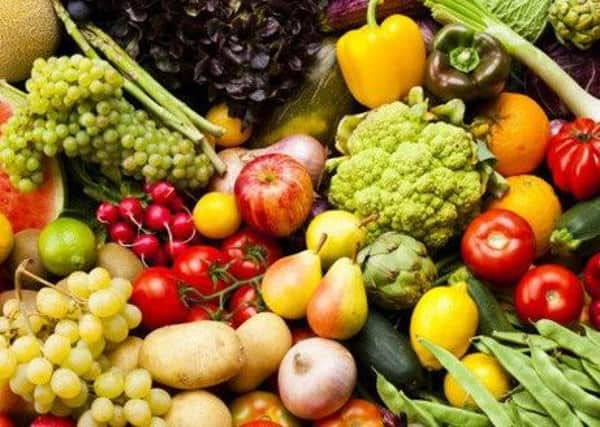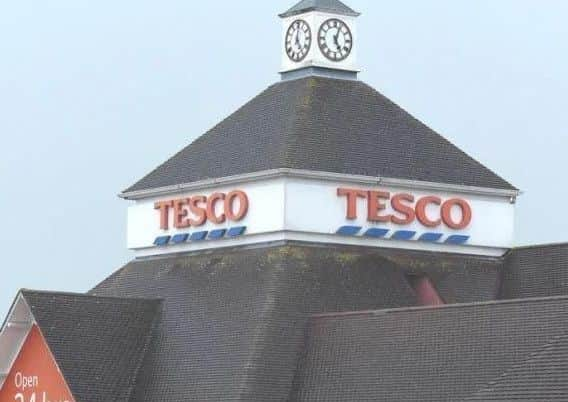Sarah Todd: '˜Nanny state' food labels are past their sell-by date


Firstly there are the smug hand-holding couples picking out tasty little treats - “some stuffed olives darling?” – and then noisy brats who ram the back of your ankles while running riot with trolleys.
But, worst of all, the earnest mummies who explain every little thing they are buying with the patronising tones of a primary school teacher during an Ofsted inspection.
Advertisement
Hide AdAdvertisement
Hide Ad

Tesco stores – mostly because they are so huge it takes such a long time to get around them – haven’t been braved by this reluctant shopper for about a decade. But the firm does deserve credit for its announcement this week that it is to remove ‘best before’ dates from fruit and vegetable lines.
There was a first wave of scrapping the often confusing labelling from 70 fruit and vegetable lines back in May and now they will be removed from a further 116 products in a PR-savvy bid to help reduce food waste.
Date labels are immediately disappearing from fresh produce such as own-brand apples, oranges, cabbages and asparagus. The thinking behind the move is that no date label will prevent food from being thrown away while still edible.
Advertisement
Hide AdAdvertisement
Hide AdPersonally, the fact that people have been chucking something like an apple out just because of a date on a label is hugely worrying and symbolic of the nation of nincompoops we have become.
My late grandmother, in common with thousands of others of her generation, would go into town every Thursday – her husband dropping her off on the way to the cattle market – and buy fruit and veg from the market stalls.
Just like her mother would have done before she’d have a good look at it, pick it up and feel it and – if in doubt – move along to another trader. She had confidence in her own opinion. She didn’t need a date-stamped cellophane wrapper to tell her whether something was worth buying.
We bought a red cabbage for Christmas Day lunch and forgot to cook it. When it was finally re-discovered at the back of the fridge (with a best before date of December 28) it seemed just the thing to have with another special meal... at Easter.
Advertisement
Hide AdAdvertisement
Hide AdIt was perfectly fine. Windfall apples have just been collected. They will be left in a shed over winter; we’ll still be going and getting a few for a crumble when the clocks change next spring. Some will have gone rotten but others will be fine.
Sometimes this laissez-faire attitude towards food gets this mother into trouble. On many occasions over the years visiting teenagers have been left to get on with their tea only for one of mine to come through and say “You’re so embarrassing – they noticed the date on the yoghurts you left out was over a week ago”.
With these dates, the nanny state effectively took away a substantial chunk of the population’s decision-making ability. It helped erode that common sense ability of my grandmother’s generation to be able look at a piece of food and know whether it was fresh or not and how quickly to get it eaten by.
Interestingly, it’s taken the common sense of a group my grandmother was a member of – the Women’s Institute – to bring Tesco to its senses.
Advertisement
Hide AdAdvertisement
Hide AdIt was the WI that first made calls on supermarkets to sign up to a voluntary agreement to avoid food waste and who did research to discover that many families find the dates on produce confusing.
Compulsory ‘use by’ labels have to be put on foods such as meat, fish, eggs and dairy products that carry a safety risk if eaten after that date.
But the best before dates put on fruit and vegetables are to show that although they may no longer be at their best, they are still safe to eat.
They all seem to blur into one in this reluctant shopper’s fridge, although it would be a lie not to admit to occasionally coming across the odd bit of fish or milk that even the cat turns its nose up at.
Advertisement
Hide AdAdvertisement
Hide AdThis week’s date announcement comes in conjunction with a push by Tesco to work with suppliers to figure out ways to use as much of their crop as possible, for example allowing more ‘wonky’ veg on the shelves and creating new products to use up food that is still edible.
Food waste is a huge issue in the UK. Some £13bn of edible food is thrown away from homes every year and, according to the government’s waste advisory body Wrap, a further £3bn is wasted by the hospitality and food service sector.
Way back in 2016, France took the lead on this subject, banning supermarkets from throwing away unsold food and requiring them instead to donate unwanted items to charities and food banks.
There is something sad about the way our population has become increasingly averse to risk-taking. Go on, go mad and make this the day you eat an apple the day after its best before date…
Sarah Todd is a former editor of Yorkshire Life magazine. She is a farmer’s daughter, mother and journalist specialising in country life.